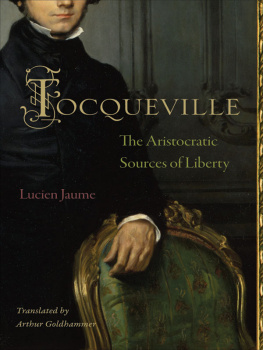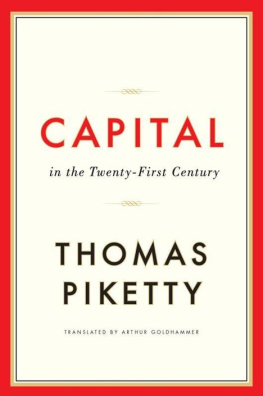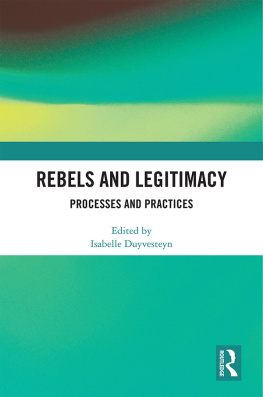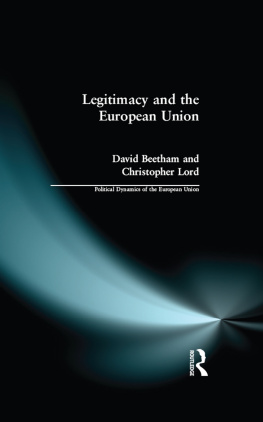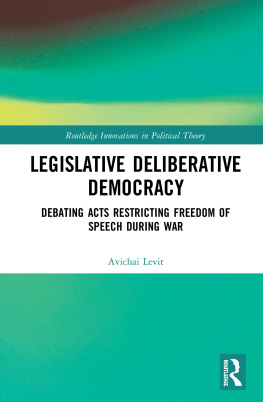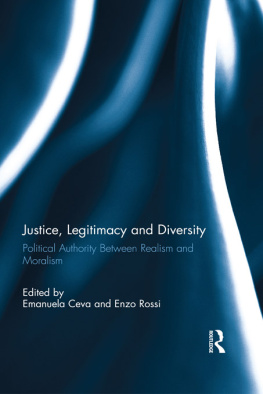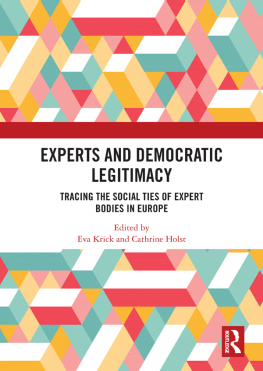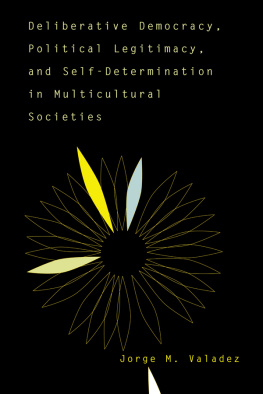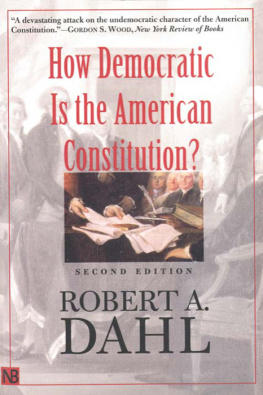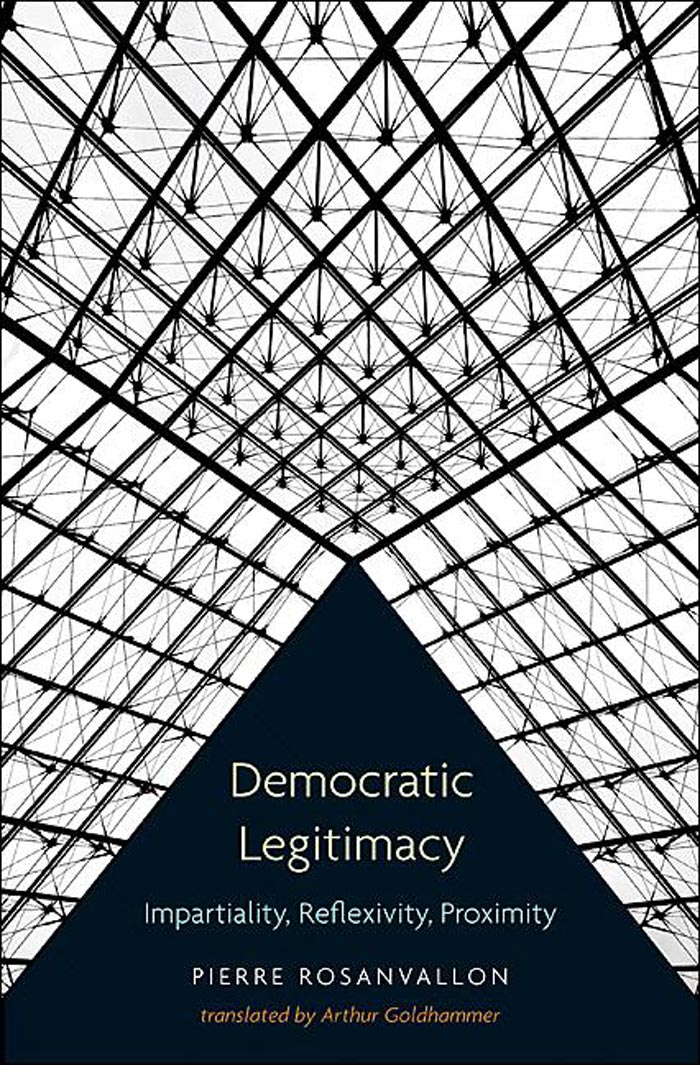Democratic Legitimacy
Democratic Legitimacy
IMPARTIALITY, REFLEXIVITY, PROXIMITY
Pierre Rosanvallon
TRANSLATED BY ARTHUR GOLDHAMMER
PRINCETON UNIVERSITY PRESS
PRINCETON & OXFORD
First published in French under the title La lgitimit dmocratique: Impartialit, reflexivit, proximit by Seuil, Les Livres du Nouveau Monde, in 2008.
Copyright 2011 by Princeton University Press
Requests for permission to reproduce material from this work should be sent to Permissions, Princeton University Press
Published by Princeton University Press, 41 William Street,
Princeton, New Jersey 08540
In the United Kingdom: Princeton University Press, 6 Oxford Street,
Woodstock, Oxfordshire OX20 1TW
press.princeton.edu
All Rights Reserved
Library of Congress Cataloging-in-Publication Data
Rosanvallon, Pierre, 1948
[Lgitimit dmocratique. English]
Democratic legitimacy : impartiality, reflexivity, proximity / Pierre Rosanvallon ;
translated by Arthur Goldhammer.
p. cm.
Includes bibliographical references and index.
ISBN 978-0-691-14948-6 (hardcover : alk. paper)
1. Democracy. 2. Legitimacy of governments. I. Title.
JC423.R6169513 2011
321.8dc22 2010034284
British Library Cataloging-in-Publication Data is available
This book has been composed in Sabon
Printed on acid-free paper.
Printed in the United States of America
10 9 8 7 6 5 4 3 2 1
Contents
I NTRODUCTION
The Decentering of Democracies
C HAPTER O NE
The Legitimacy of Establishment
C HAPTER T WO
The Legitimacy of Identification with Generality
C HAPTER T HREE
The Great Transformation
C HAPTER F OUR
Independent Authorities: History and Problems
C HAPTER F IVE
The Democracy of Impartiality
C HAPTER S IX
Is Impartiality Politics?
C HAPTER S EVEN
Reflexive Democracy
C HAPTER E IGHT
The Institutions of Reflexivity
C HAPTER N INE
On the Importance of Not Being Elected
C HAPTER T EN
Attention to Particularity
C HAPTER E LEVEN
The Politics of Presence
C HAPTER T WELVE
Interactive Democracy
C ONCLUSION
The Democracy of Appropriation
Democratic Legitimacy
INTRODUCTION
The Decentering of Democracies
F OR US , the primary characteristic of a democratic regime is the anointment by the people of those who govern. The idea that the people are the sole legitimate source of power has come to be taken for granted. No one would dream of contesting or even questioning it. Sovereignty cannot be divided, as a great French republican of the nineteenth century put it. One must choose between the elective principle and the hereditary principle. Authority must be legitimated either by the freely expressed will of all or by the supposed will of God. The people or the Pope! Choose.
F OUNDING F ICTIONS
The transition from the celebration of the People or the Nation, always in the singular, to majority rule is anything but self-evident, however, since the two terms are situated on different planes. One is a general, or, if you wish, philosophical positing of a political subject, while the other is a pragmatic selection procedure. Democratic election thus conflates a principle of justification with a technique of decision. The routine identification of the one with the other ultimately masked the latent contradiction. Indeed, the two terms are not of the same nature. Majority rule is persuasive enough as a procedure but more problematic if understood in sociological terms. In the latter case it inevitably takes on an arithmetic aspect: it designates only a fraction of the People, even if it is the dominant fraction. The justification of power by the ballot box has always implicitly rested on the idea of a general will and thus on a people symbolically standing in for the whole of society. This sociological notion was reinforced by a moral insistence on equality and a legal imperative of respect for rights, an insistence that consideration be given to the intrinsic value of each member of the community. Out of this developed a certain ideal of unanimity, which has been one of the underpinnings of the democratic idea from the beginning: democratic, in the broadest possible sense, means expressive of social generality. But we behave as though the majority were the same as the whole, as though majority rule were an acceptable way of imposing stronger demands on the governed. This first blurring of distinctions was connected to a second: the identification of the nature of a regime with the conditions under which it was established. The part stands for the whole, and the electoral moment stands for the entire term of government. The legitimacy of democratic governments rests on these two postulates.
The problem is that this basic double fiction has little by little come to be seen as an intolerable distortion of the truth. By the end of the nineteenth century, just as universal (male) suffrage was beginning to spread across Europe, signs of early disenchantment began to emerge everywhere. The specter of mass rule, initially so frightening to liberals, soon gave way to the reality of regimes hamstrung by the narrowness of their own preoccupations. The words people and nation, which had previously fed expectations and imaginations, were somehow diminished, drowned as they were in partisan squabbling and electioneering. The party system, which none of the early theorists of democracy had foreseen or analyzed, established itself everywhere as the actual center of political life, and government became enmeshed in the rivalries of personalities and clans. The legislature, which from the beginning had been taken to epitomize the spirit and form of representative government, lost its preeminence, and the nature of its operation changed. The initial ideathat of a temple of public reason in which representatives would debate the definition of the general interestin practice devolved into a system of bargaining in thrall to special interests. Meanwhile, energy continued to be invested in elections, and genuine issues were discussed. But the electoral ritual itself, once a celebration of the apotheosis of the citizen through universal suffrage, had lost its luster. Throughout the period 18901920, which saw the publication of countless books aimed at explaining the crisis of democracy, the idea that a majoritarian electoral system could somehow express the interests of the whole of society lost all credibility. Many felt that elections and parliaments led to governments in which the logic of special interests prevailed over the requirement of generality. To be sure, the principle that governments should be elected by majority rule remained unchallenged, but no one believed any longer that majority rule was an automatic guarantee of governmental virtue.
D OUBLE L EGITIMACY : T HE I NCEPTION AND D ECLINE OF A S YSTEM
Responding to this loss of confidence in the period before and after the Great War, 18901920, people searched for ways to revive the democratic ideal. The most extreme solutions were explored, including totalitarian ones. Amid this turmoil, however, something else emerged that would quietly change the nature of democratic regimes: an authentic administrative power, or bureaucracy. Everywhere states grew stronger and organized themselves more efficiently. Indeed, the growth of the state was closely related to efforts to reformulate the basic principles of democratic government. One sought to portray the bureaucratic machine


